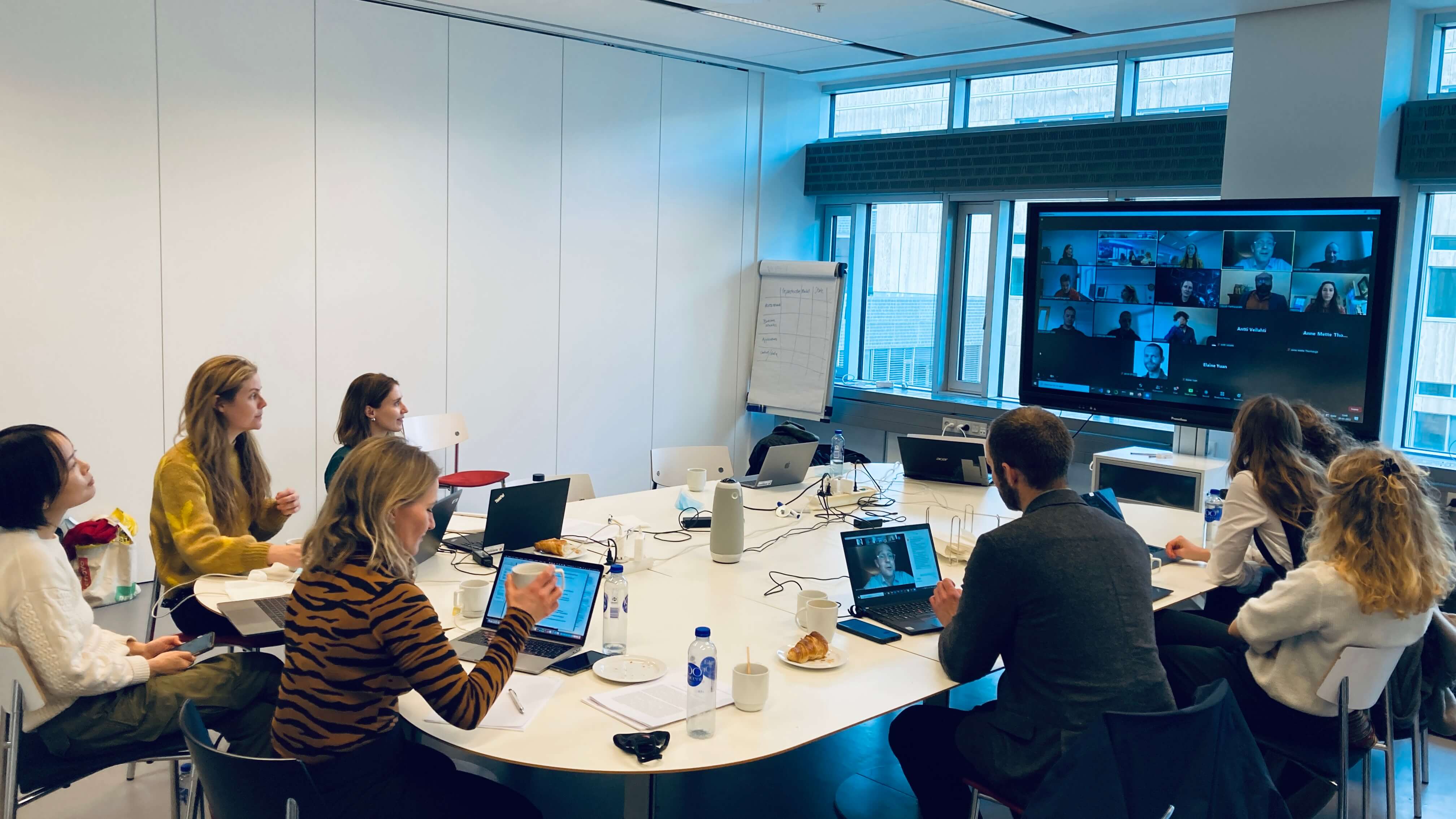Post-platform Capitalism? – Rethinking the political economy of digital markets
On January 20. researchers from DISTRACT and colleagues from DICO hosted a workshop on Post-Platform Capitalism. The workshop drew together researchers from the fields of media studies, anthropology, and sociology to discuss newly minted arguments to rethink the relationship between digital markets and political economy and to foster interdisciplinary research on data economies.
Presentation
Over recent decades, expressions such as "attention economy", "digital markets” and "platform capitalism" have become ubiquitous amongst academics, policy makers, and thought leaders. Within the overlapping fields of digital sociology, media studies and the anthropology of data, for example, several volumes published over the course of the last few years alone have homed in on selected themes or dimensions of the so-called data revolution from an explicit political economic perspective, including ‘surveillance economy’, ‘media infrastructures’, ‘digital data’ and ‘the political economy of attention’. Concurrently, there has been a renewed scholarly interest in economic sociology/anthropology, including not just foundational works by Smith, Marx, and Mauss, but also subsequent developments of their ideas by Polanyi, Thomson and Sahlins, for example.
Much of the critical literature on big tech revolves around the notion of “platforms” as the defining economic and cultural characteristics of digital capitalism. At the core of this important critique is the claim that new digitised forms of data collection and analyses have heralded an era of ‘surveillance capitalism’, where algorithmically generated segmentation, profiling and manipulation of users delivers ever more granular and precise behavioural blueprints to advertisers. Yet, while this business model has surely succeeded to an unprecedented degree in the digital age, it can by no means be considered new kind of market capitalism. To overcome this analytical presentism, we propose to bring together these two separate discussions. The aim of this workshop is therefore to rethink the political economy of digital markets by revisiting what came before and asking what might come after.

